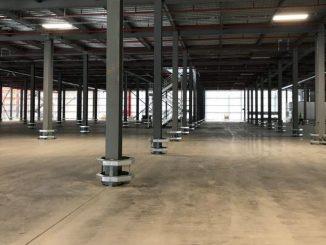
The effects of a major fire that destroyed ArrowXL’s Worcester hub in 2017 are continuing to reverberate through the business, with the company reporting a 92% fall in pre-tax profits last year.
In its latest annual results to 30 June 2019 the Yodel sister company, which specialises in two-man delivery and installation services, revealed a 92% pre-tax profit plunge to £62,000 (£862,000), despite turnover rising to £88.2m (2018: £78.1m) in the period. EBITDA fell to £3.2m (2018: £3.6m) in the same period.
The fall in pre-tax profit in the period was in part due to the previous year’s profits being boosted by a £10.4m insurance pay-out for the fire – this compares to a fire insurance pay out of just £2.8m in 2019.
In its strategic report to the results, ArrowXL said that the business had been hit by “the continued market-wide weakness in the retail environment” and the effect of the April 2017 fire at the Worcester hub which handled 43% of the firm’s volumes before the fire.
“Whilst losses from the fire were insured, a number of clients worked with the business to divert volume to other carriers until operating capacity was fully restored in January 2018,” the report said.
Read more
- ArrowXL signs deal to deliver JTX Fitness equipment
- ArrowXL appoints new director to drive staff recruitment and retention
- ArrowXL’s new Worcester hub rises from the ashes
Looking to the future, the company said it has won a number of profitable new accounts and invested in its operational and IT infrastructure as well as spending £3.8m in 2019 on fitting out the new Worcester hub. It has also recently replaced its Enfield hub with a new build facility.
Turning to the Covid-19 pandemic’s impact on the company’s performance, ArrowXL said it has seen “strong trading” during the lockdown period with an increased demand for garden, home office and gym products.
However the pandemic has forced the company to halt its in-house and assembly services and brought some “operational challenges” due to Covid-19 restrictions and increased absenteeism.
ArrowXL said it has responded to the challenges by introducing tighter cost, capital spend and trade debtor management, adding that that the company’s forecasts had been “stress tested” for a number of scenarios and that trading remains “considerably better than the stress test scenario.”
A request for comment has yet to receive a response.













